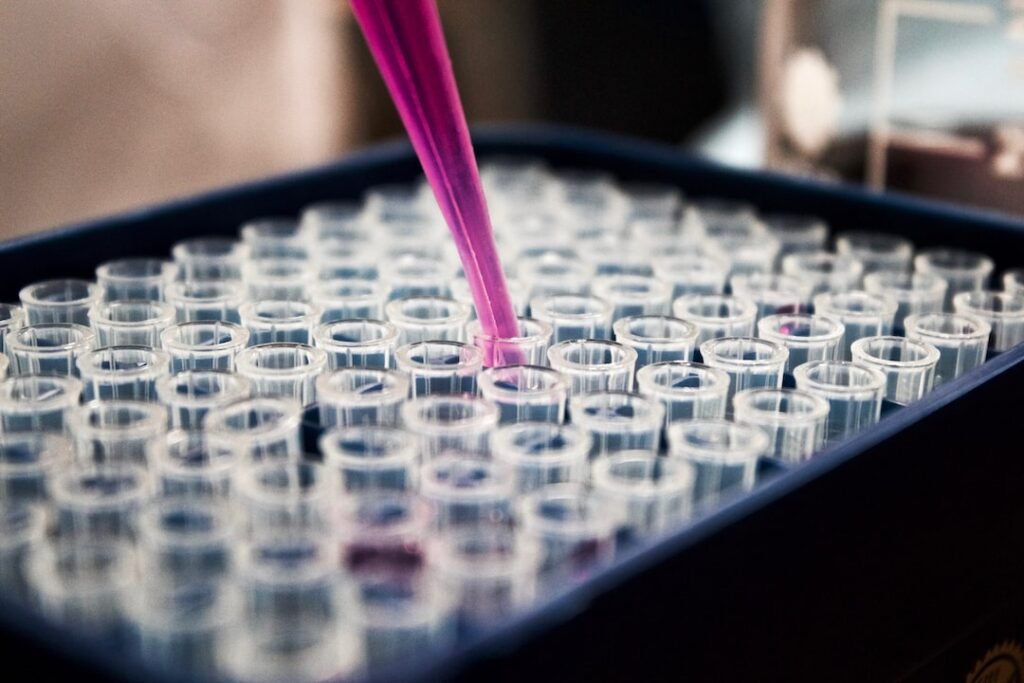
Table of Contents
Introduction
Genome editing is a hotly debated topic in the fields of science, medicine, and ethics. In recent years, it has become a powerful tool for researchers, allowing them to make precise changes to DNA and potentially cure genetic diseases. However, this technology also raises important ethical questions, particularly for those who hold Christian beliefs. As Christians, it is important for us to consider the implications of genome editing within the context of our faith and values.
In this article, we will explore the connections between genome editing and Christian bioethics. We will examine the ethical implications of this technology and how it aligns with biblical teachings. By diving into the complexities of this topic, we hope to provide valuable insights for Christians navigating the ever-evolving world of genetics and medicine.
Understanding Genome Editing:
To fully grasp the ethical implications of genome editing, it is important to first understand what this technology entails. Genome editing, also known as gene editing, is a process where specific changes are made to an organism’s DNA. This can be done through various techniques, such as CRISPR-Cas9, which allows for precise and targeted modifications to be made to the DNA sequence.
The potential of genome editing in the field of medicine is vast. It has the ability to correct genetic mutations that cause diseases, potentially leading to cures for conditions that were once considered incurable. However, with this potential also comes ethical considerations, particularly within the realm of Christian bioethics. This technology has potential to be a great benefit but it can also cause great destruction. In the next sections, we will explore how these beliefs intersect with the ethical considerations surrounding genome editing in the Christian community.
Understanding Genome Editing
While genome editing has the potential for great medical advancements, it also raises ethical concerns. One of the main concerns is the idea of “playing God.” As Christians, we believe that God is the ultimate creator and sustainer of life. Altering the genetic makeup of an individual can be seen as taking on the role of God, which goes against our beliefs. This is where the importance of ethical discussions and considerations comes into play.
In Leviticus 19:19 KJV, God commands his people not to mix different kinds of animals, plants, or fabrics. This can be interpreted as a warning against altering the natural order of things. Similarly, in Revelation 21:5 KJV, it is said that God will make all things new. This verse can be used to argue that any attempts to improve or modify what God has created may be seen as going against his plan.
However, it is important to note that not all Christians agree on the ethical implications of genetic modification. Some may argue that as stewards of God’s creation, we have a responsibility to use technology for the betterment of humanity. This perspective aligns with the belief that God has given us the ability to understand and manipulate the world around us for the greater good. This is reflected in Genesis 1:31 KJV, which states that God saw everything he had made and it was very good.
In Ephesians 2:10 KJV, it is said that we are God’s workmanship, created in Christ Jesus for good works. This verse can be interpreted to mean that God has given us the gifts and abilities to make positive contributions to the world, including advancements in medicine through genome editing. Overall, understanding genome editing and its potential in medicine is important within the context of Christian bioethics. It is a technology that holds great promise but also raises ethical dilemmas that must be carefully considered. As Christians, it is our duty to approach this topic with a balanced view, keeping in mind the sanctity of life and the belief that God has a divine plan for each and every one of us.

Christian Views on Genetic Modification
When discussing this topic, it is important to consider the biblical teachings and principles that guide our views on human life and the sanctity of creation. The Bible affirms the sanctity of human life and the belief that every individual is created in the image of God (Genesis 1:27 KJV). This belief is at the core of many Christian views on genetic modification. Altering the genetic makeup of an individual can be seen as an attempt to change what God has designed and created, leading to the questioning of God’s sovereignty and the value of human life. The book of Revelation talks about the “tree of life” bearing fruit for the healing of nations, suggesting that God’s design for healing and restoration is already perfect (Revelation 22:2 KJV).
However, there are also Christian perspectives that view genetic modification as a way to honor God’s creation and fulfill our role as stewards of the earth. This perspective acknowledges that while God is the ultimate creator, He has given humans the ability to learn and understand the complexities of His creation. By using this knowledge for the betterment of humanity, we are fulfilling our God-given purpose. Furthermore, some argue that genetic modification is no different from other medical interventions, such as vaccines or surgeries, which also alter the natural state of the body. Christians who hold this view often reference the Bible verse “By His wounds we are healed” (Isaiah 53:5 KJV), suggesting that God has given humans the wisdom and skills to heal through medical advancements.
The topic of genetic modification is a complex and controversial one within Christianity. As with any ethical dilemma, it is essential to approach it with prayer, humility, and an open mind. While there may be different perspectives and interpretations within the Christian community, what remains constant is the belief that all human life is valuable and created by God. As we continue to navigate the advancements in genetic technology, let us remember to seek wisdom and guidance from God and engage in ethical discussions to ensure that we honor His design for humanity.
God’s Design and the Role of Humans in Genetics
As stewards of God’s creation, we have a responsibility to use new technology for good, such as curing genetic diseases and improving the quality of life for individuals. We should also approach new technology with humility and recognize that our understanding of genetics is limited compared to God’s infinite knowledge.
Christians believe in the power of prayer and God’s healing. This does not mean we should not use medical treatments, but it does mean that we should seek God’s guidance and wisdom when it comes to making decisions about our health and genetic makeup. As Christians, we believe that God has a plan and purpose for each of us, including our genetic makeup. We are called to be responsible stewards of God’s creation and use genome editing technology in a way that aligns with His will and values. By doing so, we can ensure that we are using this technology for good and upholding the sanctity of human life.
Ethical Dilemmas and Christian Perspectives
Regardless of our stance, it is important to consider the potential consequences of genome editing. There is a fine line between “playing God” and using the technology for the greater good. This is where Christian perspectives can provide valuable insights, as the teachings of the Bible emphasize the importance of respect for human life and the responsibility humans have as stewards of God’s creation.
Thus, it is crucial for ethical discussions to take place when it comes to genome editing. As Christians, we must carefully consider the implications of using this technology and ensure that it aligns with our beliefs and values. Ultimately, we must strive to find a balance between the potential benefits of genome editing and the moral and ethical concerns that arise from it.
Successful Collaborations of Genome Editing and Christian Bioethics
There have been successful collaborations between genome editing and Christian bioethics, showcasing the potential for a more ethical use of this technology.
One example is the use of genome editing to correct genetic diseases in unborn babies, while also respecting the sanctity of life. This has been achieved through partnerships between scientists and Christian theologians, where ethical considerations are taken into account during the research and development process.
Furthermore, collaborations between genome editing and Christian bioethics have also led to advancements in treating diseases and improving the overall health of individuals without compromising Christian beliefs. This partnership has the potential to further medical breakthroughs while staying true to the principles of Christian ethics. These successful collaborations demonstrate the compatibility between genome editing and Christian bioethics, and the potential for ethical and moral considerations to be integrated into the use of this technology.

Conclusion
In conclusion, the topic of genome editing holds significant ethical implications within the context of Christian bioethics. As we have explored, understanding this complex interplay between science and faith is crucial for navigating the use of this technology in a way that aligns with Christian values and beliefs.
We began by defining genome editing and discussing its potential in medicine. This cutting-edge technology has the ability to treat and even cure genetic diseases, offering hope for those who previously had none. However, as with any advancement in science, it also raises ethical concerns. As Christians, it is our responsibility to carefully consider the impact of genome editing on the sanctity of life.
Through our exploration of Christian views on genetic modification, we saw that there is no one clear stance on this issue. Some may argue that genetic alterations go against the sanctity of life, while others may see them as a way to alleviate suffering. Both Leviticus 19:19 KJV and Revelation 21:5 KJV offer insight into the importance of respecting and preserving life, but there is room for interpretation and discussion within these biblical passages.
Our belief in God’s design for humanity also plays a significant role in shaping our attitudes towards genome editing. As stewards of God’s creation, we have a responsibility to use technology in a way that honors and respects His plan. This means considering the consequences of our actions and being mindful of the boundaries set by God. Genesis 1:31 KJV and Ephesians 2:10 KJV remind us of our role in God’s divine plan and how our interventions in genetics must be guided by our faith.
As we consider the ethical dilemmas surrounding genome editing, the concept of “playing God” is often brought into the conversation. While we have the capability to manipulate and alter DNA, it is essential to remember that we are not the ultimate authority. This technology should be used with caution and guided by ethical discussions that reflect our Christian values. We must also acknowledge that genome editing is not the only solution and that there may be alternative, more ethical methods of treating genetic diseases.
Finally, we have seen how successful collaborations between genome editing and Christian bioethics can lead to advancements in medicine while staying true to our faith. By working together, we can ensure that ethical considerations are at the forefront of scientific advancements. This not only benefits the medical field but also strengthens our understanding of God’s plan for humanity. The relationship between genome editing and Christian bioethics is complex and multifaceted. It is crucial for us,
As Christians, to engage in ethical discussions and consider the implications of this technology on the sanctity of life. By doing so, we can find a balance between the benefits and ethical concerns of genome editing and continue to advance in science while staying true to our faith. Let us continue to educate ourselves and have open and honest conversations about this topic, always keeping in mind the importance of ethical discussions in genetics. Together, we can navigate this complex terrain and make decisions that align with our Christian beliefs.
Join the Realty Banker Network and stay ahead of the competition. Connect with us on
Youtube, Facebook, Instagram and Twitter. We hope to see you there.

